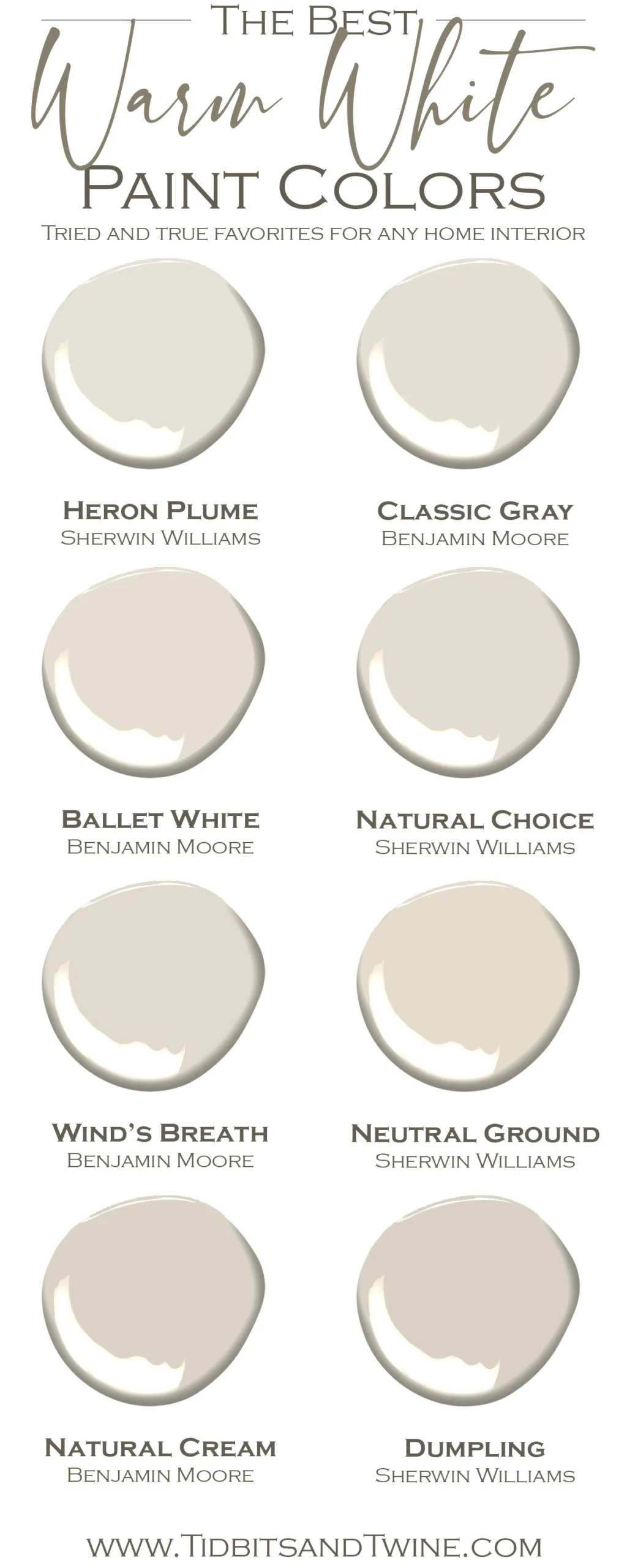Decoding Sherwin Williams Warm White: The Ultimate Guide
In the realm of interior design, the quest for the perfect white paint can feel like a digital rabbit hole. One wrong swipe and you’re spiraling into a vortex of cool, stark, and sometimes unsettling hues. But what if there was a starting point, a beacon in the whitewash wilderness? Enter Sherwin Williams warm white, a category of paint colors designed to infuse spaces with a gentle, inviting glow.
Sherwin Williams’ warm whites aren't just a single shade; they're a curated collection, each with its own subtle personality. Think of it as a spectrum, ranging from creamy, almost yellow-based hues to those with a touch of gray or even a whisper of pink. This complexity allows for a tailored approach to design, offering a warm white for every aesthetic and every room.
The popularity of Sherwin Williams warm whites stems from their versatility. They can act as a neutral backdrop, allowing furniture and art to take center stage, or they can create a cozy, enveloping atmosphere, perfect for bedrooms and living areas. This adaptability makes them a go-to choice for both homeowners and professional designers.
Choosing the right warm white can be tricky. Factors like natural light, existing decor, and even the direction your room faces can dramatically impact how a color appears. This is where understanding undertones becomes crucial. A warm white with a yellow undertone might appear too buttery in a south-facing room, while a gray undertone could look dull in a north-facing space. Navigating these nuances is key to achieving the desired effect.
This guide delves into the world of Sherwin Williams warm white paints, exploring popular choices like Alabaster, Creamy, and Natural Choice, among others. We’ll dissect their undertones, examine their best applications, and provide real-world examples to help you confidently navigate the warm white landscape.
The history of warm white paints is intertwined with the evolution of paint technology itself. Early paints were often limited in their color range, and achieving a consistent, reliable white was a significant challenge. As pigment technology advanced, so did the ability to create nuanced shades of white, including the warm whites we know and love today. Sherwin-Williams, founded in 1866, has been at the forefront of this evolution, continuously refining their formulas to offer a diverse palette of whites.
Benefits of Sherwin Williams Warm White:
1. Versatility: Warm whites adapt to various design styles and room orientations.
2. Creating a Welcoming Atmosphere: They infuse spaces with a sense of comfort and tranquility.
3. Enhanced Light Reflection: Compared to cooler whites, warm whites often reflect light more effectively, making rooms feel brighter and more spacious.
Best Practices:
1. Test Before You Commit: Always sample the paint color in your space before committing to a full gallon.
2. Consider the Lighting: Natural and artificial light will influence how the color appears.
3. Coordinate with Existing Decor: Choose a warm white that complements your furniture and accessories.
4. Pay Attention to Undertones: Understand the undertones of the paint and how they will interact with your room's lighting.
5. Consult with a Professional: If you're unsure, seek guidance from a color consultant or interior designer.
Advantages and Disadvantages of Sherwin Williams Warm White
| Advantages | Disadvantages |
|---|---|
| Creates a warm and inviting atmosphere | Can appear yellowish in some lighting conditions |
| Versatile and complements various decor styles | Might require more coats for full coverage compared to some other colors |
FAQ:
1. What is the most popular Sherwin Williams warm white? Alabaster is often cited as a favorite.
2. Are all warm whites the same? No, they vary in undertones and intensity.
3. Can I use a warm white in a small room? Yes, but consider the lighting and surrounding colors.
4. What is the difference between Alabaster and Creamy? Alabaster has a softer, more neutral feel, while Creamy leans more towards yellow.
5. How do I choose the right warm white for my kitchen? Consider the cabinetry, countertops, and overall style of your kitchen.
6. Can I use warm white on trim? Absolutely, it can create a cohesive and sophisticated look.
7. What sheen should I choose for warm white walls? Eggshell or satin are popular choices for interior walls.
8. How can I prevent my warm white from looking too yellow? Pay close attention to the undertones and test the paint in your space under different lighting conditions.
In conclusion, the allure of Sherwin Williams warm white paints lies in their ability to transform a house into a home. These versatile hues offer a spectrum of options, from soft and creamy to bright and airy, catering to a diverse range of design aesthetics. By understanding the nuances of undertones, lighting, and application techniques, you can harness the power of warm white to create a space that is both stylish and inviting. Selecting the right warm white can be transformative, enhancing the ambiance and feel of any room. Whether you're aiming for a cozy retreat or a bright and airy space, Sherwin Williams warm whites provide a versatile canvas for your design vision. Take the time to explore the various shades, experiment with samples, and discover the perfect warm white to bring warmth and personality to your home.
Unlock your creativity the ultimate guide to oil based sharpie markers from michaels
Ryan reynoldss cell phone company whats the deal with mint mobile
Decoding the nfl draft a look back at the last decade














